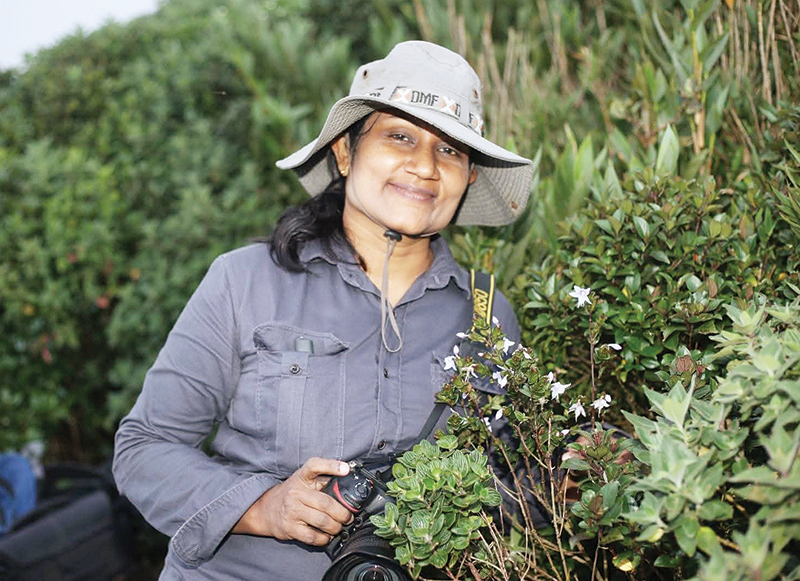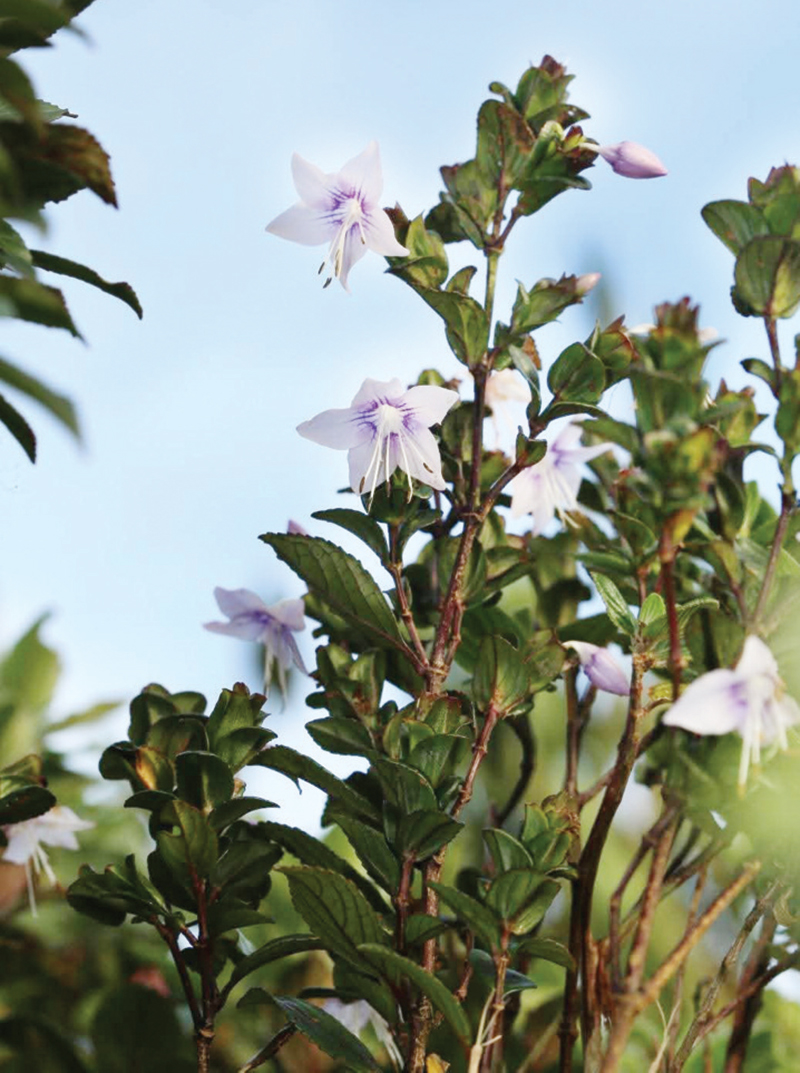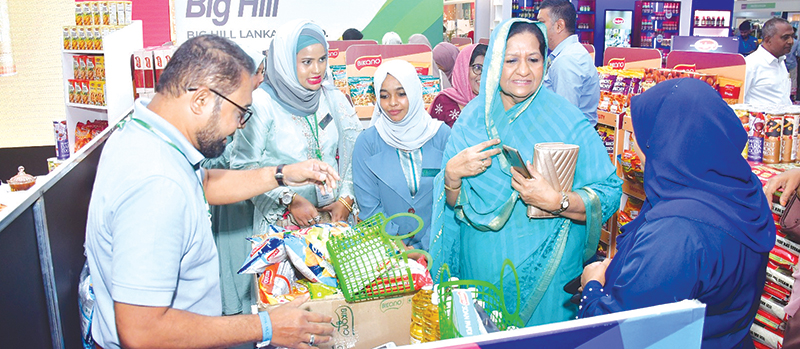Life style
Upali Wijewardene: He reached for the stars
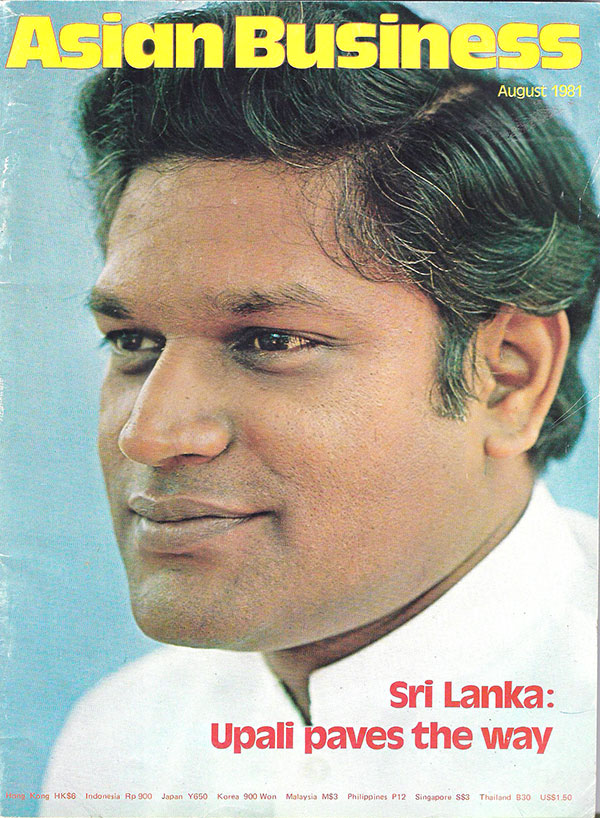
On a day like this 39 years ago on February 13, 1983, Sri Lanka’s much loved business leader, Upali Wijewardene, who captured the imagination of an entire nation vanished without trace in his Lear jet with five others on board. They were returning to Colombo from Malaysia where his Kandos chocolates had hit dizzy heights.
His disappearance engulfed the the region with shock and disbelief. US Orion surveillance aircraft, Soviet and Australian warships, Indonesian minesweepers, Indian airplanes, Malaysian patrol boats and Sri Lankan fishermen were all mobilized in search operations to no avail. ‘What if Upali lived? What really happened to Upali?’ continue to be yet unanswered questions.
If Upali Wijewardene was a sensation in life, he was elevated to a legend after he went missing just four days short of his 45th birthday.
Wild theories about his disappearance were floated around and Colombo’s children of the 80s were said to have devised a game called ‘Finding Upali’s Plane.’ A larger than life figure and a maverick who embraced life with such gusto had disappeared; but he continues to live in the heart of a nation.
The Sunday Island recaps the saga of its founder who was once dubbed ‘the ‘Quintessential Entrepreneur of Asia’ and ‘the man who would be President’
By Randima Attygalle
“My philosophy is to do what you know how to do well and from this I mean you must have the knowledge right all the way through…” reflected Philip Upali Wijewardene, or ‘PUW” as he was fondly called, in an interview with the Malaysian Business in December, 1981. In a technologically austere time, long before the digital revolution when a direct international call had to be ‘booked.’ Wijewardene plunged into chocolate-making, assembly of cars, newspaper publishing, aviation, plantations and much more. As was once documented, ‘the success story of Upali, is the story of how small Asian companies can grow into multinational corporations. It was a precursor of the coming of age of the ‘entrepreneurial Asian.’
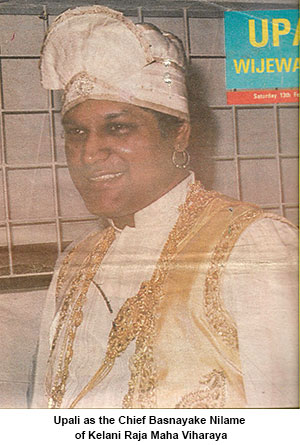 Philip Upali Wijewardene was born on February 17, 1938 to Don Walter Wijewardene (from Sedawatta walauwa ) and Anula Kalyanawathi Wijesinghe (from Miriswatta Walauwa) at his famous paternal grandmother Helena Wijewardene’s mansion, Sri Ramya, in Colombo (where the present American Centre stands). Upali grew up amidst the affection of his two older sisters, Anoja and Kalyani and a bevy of cousins. He received his kindergarten education at Ladies’ College and later at Royal College, Colombo. When he turned 15, Upali was sent off to St. John’s School Leatherhead in England. Having read Economics at the University of Cambridge, the 21-year-old debonair Wijewardene returned home in 1959 and was recruited by Lever Brothers as a Management Trainee. The corporate rigours and an eternally irate boss left the young recruit drained in two years.
Philip Upali Wijewardene was born on February 17, 1938 to Don Walter Wijewardene (from Sedawatta walauwa ) and Anula Kalyanawathi Wijesinghe (from Miriswatta Walauwa) at his famous paternal grandmother Helena Wijewardene’s mansion, Sri Ramya, in Colombo (where the present American Centre stands). Upali grew up amidst the affection of his two older sisters, Anoja and Kalyani and a bevy of cousins. He received his kindergarten education at Ladies’ College and later at Royal College, Colombo. When he turned 15, Upali was sent off to St. John’s School Leatherhead in England. Having read Economics at the University of Cambridge, the 21-year-old debonair Wijewardene returned home in 1959 and was recruited by Lever Brothers as a Management Trainee. The corporate rigours and an eternally irate boss left the young recruit drained in two years.
Having quit Levers in 1961, the blue-blooded Wijewardene did not fall back on his family wealth but sought his own fortune first with a friend’s ailing confectionery plant which he re-baptized as Delta and a few years later with Kandos – the brand promoted by Ceylon Chocolates Ltd. In 1970, with the demise of its founder Chairman, Senator Sarath Wijesinghe, his nephew Upali Wijewardene who was expanding his business empire took over the reins of that company.
True to Wijewardene’s philosophy: ‘plunge in and get on with it’, the expanding fully-fledged cocoa processing plants and factories in Malaysia, Singapore and Thailand enabled Kandos to be internationally present and rub shoulders with Nabisco, Mars, Cadbury and Hershey’s. At the time of his disappearance, Wijewardene claimed to be the only fully-integrated cocoa processor in Asia, with businesses ranging from growing cocoa to manufacturing cocoa-based consumer products. The cocoa tree which still adorns the Upali Group’s head office in Colombo and the taller tree which once stood at the door to his luxurious home in Pantai Hills in Kuala Lumpur, which he aptly named ‘Cocoa Hill’, says it all.
Following his uncle D.R. Wijewardene, the press baron, he went on to launch The Island and Divaina snubbing feasibility studies of foreign experts who warned him that the national newspaper market was already saturated. The exercise, as he alluded to the Insight magazine in May, 1981 five months ahead of its launch, was one of his ‘fun-projects’ but analysts say that political ambitions down the road were part of the story.
Just two months following the success of the newspaper, in an interview with a Malaysian business journal, Wijewardene gleefully remarked: “it must be a world record of some sort.” He went onto note that the newspaper’s popularity probably has more to do with editorial policy and style, adding tongue-in-cheek: “they said there was no market, but people must have got tired of reading gazettes!” As the founder editor of the Island, Vijitha Yapa once recalled, Wijewardene was “an editor’s ideal publisher who never interfered with the independence of the newspaper.”
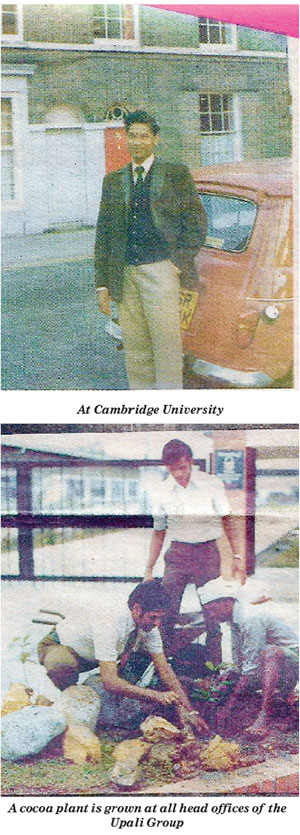 The present Managing Director and CEO of the Upali Group of Companies, Nimal Welgama recollects: “Upali was a man with tremendous energy which he employed in everything he did. He was mischievous, had a sense of fun and in the last lap of his life, not only gave of himself to his many private enterprises but also contributed his time and skill for public purposes; hence his period as Chairman and Director General of the Greater Colombo Economic Commission (GCEC), the predecessor of the Board of Investment (BOI).”
The present Managing Director and CEO of the Upali Group of Companies, Nimal Welgama recollects: “Upali was a man with tremendous energy which he employed in everything he did. He was mischievous, had a sense of fun and in the last lap of his life, not only gave of himself to his many private enterprises but also contributed his time and skill for public purposes; hence his period as Chairman and Director General of the Greater Colombo Economic Commission (GCEC), the predecessor of the Board of Investment (BOI).”
Having worked for the Upali Group as a young man, Welgama recounts his one-time boss ‘making waves in his own inimitable style.’ “He was ever conscious that his father died young and he did not expect to attain a venerable old age. At the time his life was so tragically snuffed out, he used to say that the accent is on enjoying”.
The emblem of the business group he set up – the blazing copper sun with a ‘U’ in the middle was a motif of Wijewardene’s own personality says the Upali Group’s CEO. “The warmth of his personality, like that of the sun, was felt by the many people he befriended. He was good to his employees, people who served him at various levels, and in return had not only their loyalty but their affection.”
From steering a multinational to being the Chief Basnayake Nilame of the Kelani Raja Maha Vihara, Wijewardene donned many hats. His string of thoroughbreds and Labradors stole a large part of his heart. His beloved ‘Charlie’ is said to have kept a long vigil for months after he disappeared, waiting for his master who never returned.
“My late uncle Upali’s signature facet was his love for speed. This he applied in expanding his business empire. He bought a Lear jet and obtained a Red Passport as the Chairman of GCEC because he was a man for speed and a fast decision-maker. Even his other indulgences including his love for horse and car racing reflected this,” recollects nephew, Dhammika Attygalle who was 18 at the time of his uncle’s disappearance and is now a Director of the Upali Group of Companies.
Sporting his ‘Red and Gold Cross Slash’, Wijewardene’s Rasa Penang, Varron, Kandos-Man, General Atty, King of Zulu and Cornwall Garden shone at Royal Ascot, Singapore Derby and Perak Derby, ridden by none other than Lester Piggot. “One time Chairman of the Board of Stewards of the Sri Lanka Turf Club, he would even do a tarmac transfer to his helicopter and would make it to Nuwara Eliya, sometimes just minutes before races were to start.
The luxury S-Class Mercedes Benz 116 which he imported from Malaysia was the first of its kind in Sri Lanka. Upali mama used to travel to Nuwara Eliya or Kamburupitiya (his maternal home town) after dinner to save time and to reach the destination fast,” recollects Attygalle who goes on to note that his late uncle initiated Ruhunu Udanaya Movement to develop his maternal home town Kamburupitiya from where he had ambitions of being elected to Parliament..
A fan of Victor Ratnayake, C.T.Fernando and Milton Perera, Wijewardene would also enjoy the country-western timbre of Jim Reeves, who as he had once conceded, ‘puts him in a pensive mood for thinking up new business schemes.’
Having built a global corporation which spanned several countries including Malaysia, Singapore and the USA in the 1970s and the early 80s in an era of snail mail, telegrams and pre-booked international calls when communicating with people abroad took weeks and travel overseas was expensive and a luxury, her late uncle’s confidence and ‘can do’ attitude inspired her, says niece Lakmini Wijesundera, Co-founder and CEO of IronOne Technologies and BoardPAC. “Today, we have instant communication access and the speed of business is fast-tracked. Asia and the South East Asian regions have comparably good infrastructure to perform. Therefore, the great strides and speed at which he operated despite the obstacles in a technologically-Spartan era is outstanding and stands out among the rest even by today’s standards,” says Wijesundera, a successful entrepreneur herself.
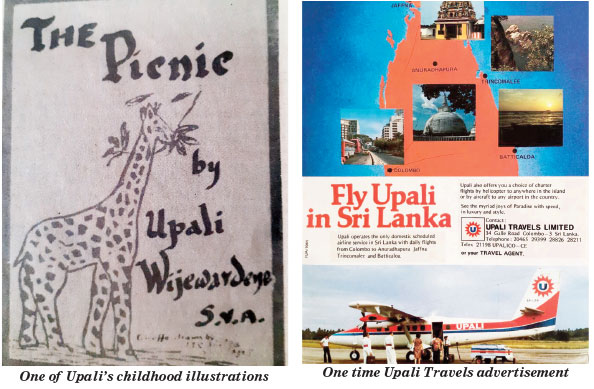
She further remarks that her uncle had his sights up high and was not discouraged by past benchmarks. Therefore, he was able to carve new paths and futures and created an impact in the minds and hearts of Lankans whom he inspired to ‘dream big.’ He hammered home the message that we didn’t necessarily have to be conservative in what we wished to attain.
“His focus on branding was unmatched,” reflects Wijesundera who points out that the Free Trade Zones and concepts of similar nature were supported and led by him to create a fresh economic future for Sri Lanka – models which were innovative then and sucessfully adopted by several other countries in the region.
Watching her Upali mama’s helicopter landing on the flat roof of his Thurstan Road residence was an unforgettable memory for young Lakmini and her siblings. “We were so excited to be part of this rare experience at that time,” she smiles adding that she recalls him to be full of life with a great sense of humour and always with a smile. Thirteen years old at the time her uncle vanished, Wijesundera who relished her mother’s stories about her brother ‘starting from scratch with great determination at a young age.’ She believes that her Upali mama personified the belief that anything is possible with the correct mindset- a mantra that she believes in today.
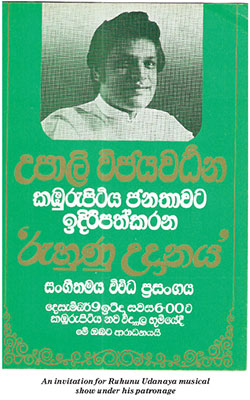
A man who would think big, Wijewardene would advance from Upali Fiat and UMC Mazda to ‘Upali Aviation’. – the only domestic flight which would bridge the North and the South. The halting of the operations of the Upali Airline was a double whammy to fellow Jaffna countrymen who not only saw the flight as a vehicle of better communication between Jaffna and Colombo but also its founder as a harbinger of hope who would have possibly bridged the economic disparity between North and South.
Describing Wijewardene as ‘Sri Lanka’s most colourful businessman who has made a fortune both at home and abroad’, Matt Miller in his article under the banner ‘The man who would be President’ documents in May, 1981, ‘now he is turning his abundant energies and resources to a new arena; politics.’ Noting that ‘Upali’s current passion for politics is matched only by his passion for racehorses,’ Miller goes onto write: “And now the 43-year-old commodities wizard has started what could be called Upali’s Third 20-Year-Plan: ‘The first 20 years were education,” he says, “the second business and the third politics.” He would “be willing”, he says with uncharacteristic restraint to become president of Sri Lanka someday.”
With his suave personality and witty repartee, Wijewardene was a darling of the press. Adorning cover pages of coveted international business journals, he still remains the only home-grown Sri Lankan entrepreneur owning a multi-national to have been featured in the prestigious Fortune magazine.
The present Editor of the Sunday Times, Sinha Ratnatunga, then a young journalist who was one of the close acquaintances of Wijewardene privy to the last moments of the tycoon recollects: “When Upali left for the airport around 6.30 p.m. that day, I left at the same time for Ana Seneviratne’s residence. He was then the High Commissioner for Sri Lanka in Kuala Lumpur. I was to stay there until I flew to join my father who was in Jakarta.
The High Commissioner was getting calls well past midnight and it was only in the morning I heard that Upali’s plane hadn’t arrived in Colombo. I was not particularly taken aback or overly concerned straightaway thinking it was typical of him to go off the beaten track as Upali could be so unconventional even in his planes. It was only by midday while at Genting Highlands watching the cable cars going about that I got that eerie feeling that the plane must be missing.”
As veteran journalist Ajith Samaranayake once commented, “politicians Sri Lanka had known before (included) poets, pundits, scholars, sportsmen, film stars and singers alike. Philip Upali Wijewardene, however, did not belong to any of these moulds. He was not moulded out of the common clay. He broke the mould and reshaped it closer to his heart’s desire.” In Wijewardene’s own words his image in the villages is of “an international businessman of whom they are proud… The villager identifies only with success and for the youth I am probably the culmination of their aspirations.”
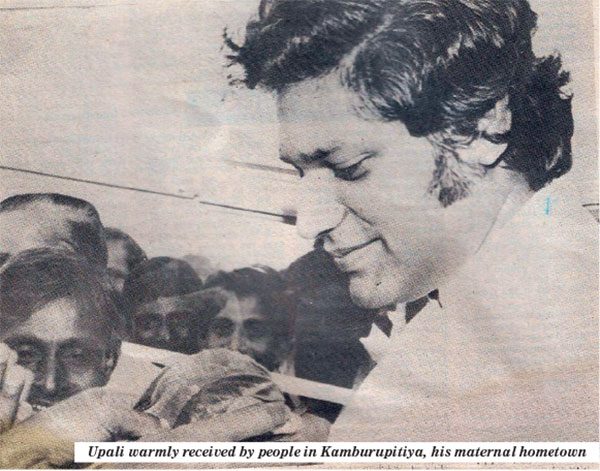
On a personal note, although I was merely a child at the time of Mr. Wijewardene’s untimely demise, I was fortunate to have become a part of the legacy he left behind for Sri Lankan journalism. While Kandos chocolates, Delta toffees, his landmark home in Colombo and the resplendent Nuwara Eliya bungalow and its garden- (which often clinched the ‘Best Garden’ award during the April season) and his Lear jet were motifs I often associated with him as a young child, becoming part of his newspaper allowed me a vantage point to this towering personality.
One of my favourite research subjects, I often hear anecdotes about this trendsetter by my senior colleagues. My editor Manik de Silva who was Mr. Wijewardene’s first choice to edit The Island (which he has recounted under the title The job I didn’t take) has many stories I have savoured – particularly the one about the young Upali knowing he had got the Lever Brothers management trainee job when the sudda boss took him and his rival to the Galle Face Hotel to lunch to check out their table manners. “When my rival titled his soup bowl towards himself and not the other way, I knew I had the job,” Upali had said,

My other colleagues Zanita Careem and Anneston Weerasinghe who were recruited by Mr. Wijewardene more than 40 years ago remember him as a man of infectious charisma who would turn heads not just once but twice.
I’m only humbled to have clinched the award given in his name (Upali Wijewardene Feature Writer of the Year) multiple times – twice from a newspaper he founded. I’m indeed fortunate to have become part of the publication he founded 40 years ago as a platform for liberal expression without fear or favour.
Each time I hear the rustle of the wind blowing through the cocoa tree he planted in the Upali compound, and look at the splendid dome of St. Lucia’s Cathedral nearby towering overhead, I remember Elton John’s Candle in the wind he sang for Marylin Monroe.:
‘And I would have liked to have known you
But I was just a kid
Your candle burned out long before
Your legend ever did….’
Life style
Rediscovery of Strobilanthes pentandra after 48 years
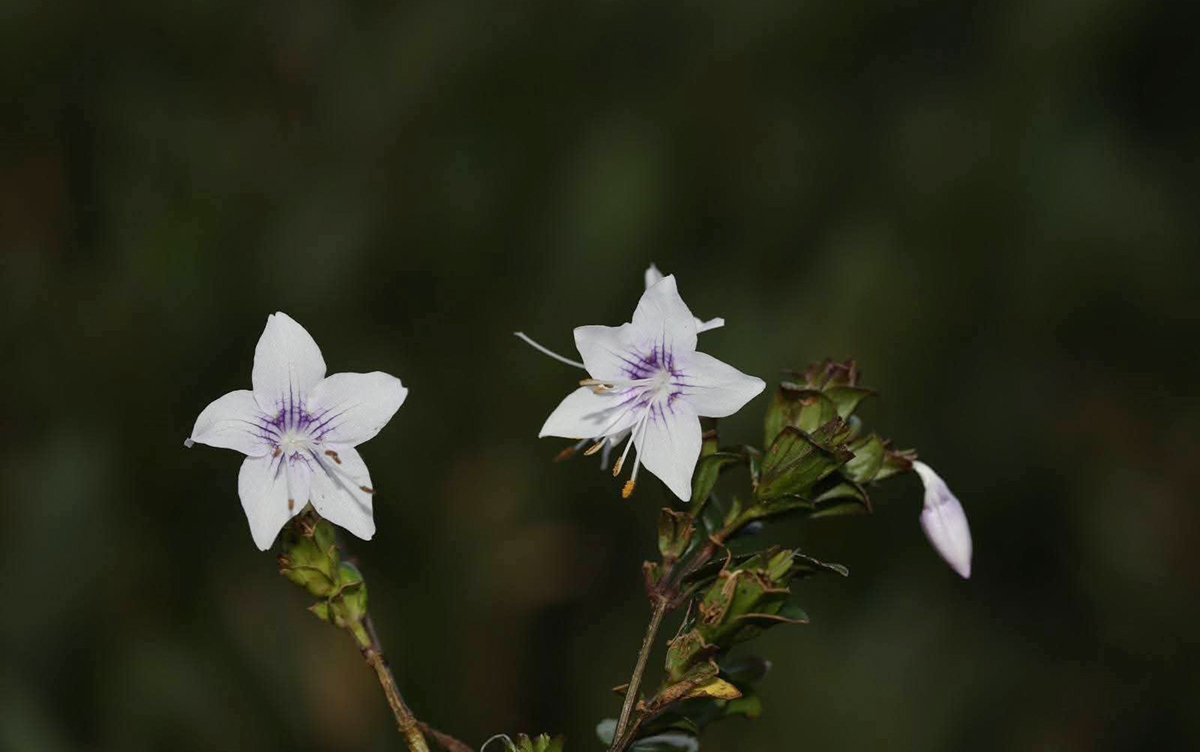
A Flower Returns From Silence:
Nearly half a century after it slipped into botanical silence, a ghost flower of Sri Lanka’s misty highlands has returned—quietly, improbably, and beautifully—from the folds of the Knuckles mountain range.
In a discovery that blends patience, intuition and sheer field grit, Strobilanthes pentandra, one of Sri Lanka’s most elusive endemic flowering plants, has been rediscovered after 48 years with no confirmed records of its existence in the wild. For decades, it lived only as a name, a drawing, and a herbarium sheet. Until now.
This rare nelu species was first introduced to science in 1995 by renowned botanist J. R. I. Wood, based solely on a specimen collected in 1978 by Kostermans from the Lebnon Estate area. Remarkably, Wood himself had never seen the plant alive. The scientific illustration that accompanied its description was drawn entirely from dried herbarium material—an act of scholarly faith in a plant already vanishing from memory.
From then on, Strobilanthes pentandra faded into obscurity. For 47 long years, there were no sightings, no photographs, no field notes. By the time Sri Lanka’s 2020 National Red List was compiled, the species had been classified as Critically Endangered, feared by many to be lost, if not extinct.
The turning point came not from a planned expedition, but from curiosity.
In October 2025, Induwara Sachinthana, a fourth-year medical student at the University of Peradeniya with a sharp eye for plants, stumbled upon an unfamiliar flowering shrub while trekking in the Knuckles region.
Sensing its importance, he photographed the plant and sent the images for verification, asking a simple but crucial question: Could this be the recently described Strobilanthes sripadensis, discovered from the Sri Pada sanctuary in 2022?
At first glance, the resemblance was striking. But something didn’t quite add up.
Based on the location, morphology, and subtle floral traits, the initial response was cautious: it was neither S. sripadensis nor S. pentandra—or perhaps something entirely new. Yet, as the pieces slowly aligned, and as the habitat details became clearer, the possibility grew stronger: this long-lost species had quietly persisted in the rugged heart of Knuckles.
The confirmation followed through collaborative expertise. Leading Strobilanthes specialist Dr. Renuka Nilanthi Rajapakse, together with Dr. Himesh Dilruwan Jayasinghe and other researchers, carefully examined the evidence. After detailed comparison with historical descriptions and herbarium material, the verdict was clear and electrifying: this was indeed Strobilanthes pentandra.
What followed was not easy.
A challenging hike through unforgiving terrain led to the first live confirmation of the species in nearly five decades. Fresh specimens were documented and collected, breathing life into what had long been a botanical myth.
Adding further weight to the rediscovery, naturalist Aruna Wijenayaka and others subsequently recorded the same species from several additional locations within the Knuckles landscape.
The full scientific credit for this rediscovery rightfully belongs to Induwara Sachinthana, whose curiosity set the chain in motion, and to the dedicated field teams that followed through with persistence and precision.
Interestingly, the journey also resolved an important taxonomic question. Strobilanthes pentandra bears a strong resemblance to Strobilanthes sripadensis, raising early doubts about whether the Sri Pada species might have been misidentified.
Detailed analysis now confirms they are distinct species, each possessing unique diagnostic characters that separate them from each other—and from all other known nelu species in Sri Lanka. That said, as with all living systems, future taxonomic revisions remain possible. Nature, after all, is never finished telling her story.
Although the research paper is yet to be formally published, the team decided to share the news sooner than planned. With many hikers and locals already encountering the plant in Knuckles, its existence was no longer a secret. Transparency, in this case, serves conservation better than silence.
This rediscovery is more than a scientific milestone. It is a reminder of how much remains unseen in Sri Lanka’s biodiversity hotspots—and how easily such treasures can vanish without notice. It also highlights the power of collaboration across generations, disciplines and institutions.
Researchers thanked the Department of Wildlife Conservation and the Forest Department for granting research permissions, and to the many individuals who supported fieldwork in visible and invisible ways.
After 48 years in the shadows, Strobilanthes pentandra has stepped back into the light—fragile, rare, and reminding us that extinction is not always the final chapter.
Sometimes, nature waits.
By Ifham Nizam ✍️
Life style
Desire to connection. understanding sexual health in modern relationships
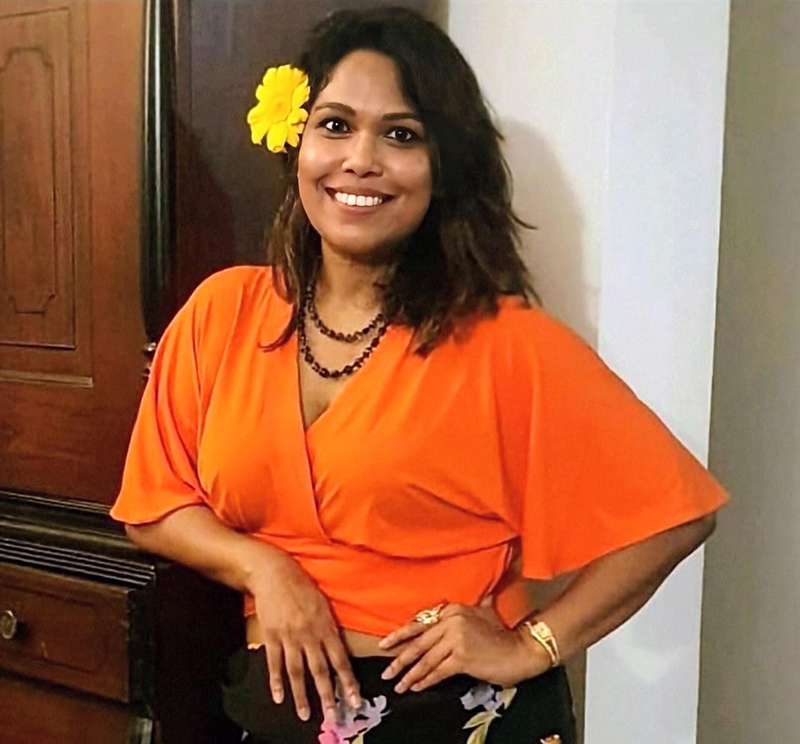
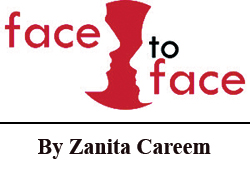 A conversation about intimacy, belonging and relationships with Dr Yasuni Manikkage
A conversation about intimacy, belonging and relationships with Dr Yasuni Manikkage
In an age where relationships are shaped as much by emotional awareness as by digital connection, conversations about sexual health are finally stepping out of the shadows.
As Dr. Yasuni Manikkage explains, sexual health is not just a medical issue but a lived experience woven through communication, consent, mental wellbeing and self-respect. Many couples share a home, a bed, even children, yet still feel like “Roommates with responsibilities” rather than lovers, which often signal a lack of emotional safety rather than a lack of physical contact. When desire shifts, they may panic, blame themselves or fear the relationship is dying, instead of recognising that changes in desire are common, understandable, and often transformable with knowledge, honest dialogue, and small daily acts of connection.
Q: Why did you decide to talk about sexual desire and connection now?
A: Because so many couples quietly suffer here. They love each other, share a home, raise children, but feel like “roommates with responsibilities” rather than lovers. They rarely talk about sex openly, so when desire changes, they panic, blame themselves, or assume the relationship is dying. I want people to know shifts in desire are common, understandable, and often treatable with knowledge, communication, and small daily changes.
Q: You say there is an “education gap” in sexual health. What do you mean by that?
A: Most women have never been properly taught about their own sexual anatomy, especially where and how they feel pleasure. Many men, on the other hand, have been left to “figure it out” from pornography, jokes, and guesswork. That’s a terrible training manual for real bodies and real emotions. This gap affects how easily women reach orgasm, how safe they feel in bed, and how satisfied both partners feel in the relationship.
Q: We hear about the “orgasm gap.” Is it really not biological?
A: There are biological factors, yes, but the main gap we see between men’s and women’s orgasm rates in heterosexual relationships comes from communication, knowledge, and what I call “pleasure equity.” In many bedrooms, the script is focused on penetration, speed, and the man’s climax. Women’s pleasure is often treated as optional or “extra.” When couples learn anatomy, slow down, focus on both bodies, and talk about what feels good, that gap narrows dramatically.
Q: Most people think desire should be spontaneous. Is that a myth?
A: It’s one of the biggest myths. Movies show desire as a spark that appears out of nowhere: one glance across the room and suddenly you’re tearing each other’s clothes off. That kind of spontaneous desire does happen, especially early in a relationship. But for many people, especially women, desire is often “responsive”. That means they start feeling desire after some warmth, touch, emotional closeness, or stimulation, not before.
So, if you’re waiting to “feel like it” before you touch or connect, you may wait a very long time. For many, desire comes “after” they start, not before.
Q: How would you scientifically describe sexual desire?
A: Desire is not just a physical urge. It’s a blend of attraction to your partner’s body and personality, emotional connection and feeling cared for, a sense of self-expansion or growth, learning, feeling alive with them, trust and safety, both emotionally and physically. It’s contextual: it changes with stress, health, life stages, and relationship quality. It’s relational: it lives between two nervous systems, not just in one body. And for many, it’s responsive: you get in the mood “after” a hug, a joke, a shower together, not randomly at 3 p.m. on a Tuesday.
Q: You mentioned an “updated sexual response cycle.” What does that look like in real life?
A: Older models suggested a straight line: desire, arousal, orgasm and resolution. That’s tidy, but human beings are messy and complex. Modern understanding is more like a circle or loop. You can enter the cycle at different points: maybe you start with touch, or a feeling of closeness, or even just a decision to connect. Desire doesn’t always come first; sometimes it shows up halfway through.
For example, you may feel tired and not “in the mood,” but you agree to cuddle and share some gentle touch. As you relax and feel appreciated, arousal builds, and then desire appears. That’s normal, not fake.
Q: Are there real gender differences in how desire works?
A: There are common patterns, though individuals vary a lot. Many women tend to enter through emotional intimacy: feeling heard, understood, and safe. Physical touch then wakes up arousal, and desire follows.
Many men more often start with physical attraction or arousal. They may feel desire quickly in response to visual or physical cues, and emotional intimacy can deepen later.
Both patterns are healthy and normal. The problem starts when each partner assumes the other should work exactly like them, and if they don’t, they must be “cold” “needy” or “broken.” Understanding these differences turns conflict into curiosity.
Q: How does desire change as a relationship ages?
A: Think of three broad stages.
stage 1 – Early Attraction (0-6 months): High novelty, strong chemistry, lots of dopamine. You’re discovering each other; desire often feels effortless. stage 2 – Deepening Intimacy (6 months-2 years): You know each other better. The high settles. Desire becomes more linked to emotional closeness. Frequency may drop, and that is “normal”.
stage 3 – Maintenance and Maturity (2-10+ years): Life arrives -work, kids, money, health. Desire usually doesn’t feel automatic. It needs conscious attention, novelty, and emotional safety.
A common mistake is comparing stage 3 desire to Stage 1 and assuming, “we’ve failed.” Actually, you’ve just moved into a different phase that requires new skills.
Q: What are some main things that influence desire?
A:We can think in three layers.
Biological: hormones (testosterone, estrogen), brain chemicals (dopamine, serotonin), medical conditions like diabetes, heart disease, cancer, chronic pain, sleep problems, menopause, and genital issues such as vaginal dryness or pelvic floor pain.
Psychological: negative early sexual experiences, trauma or abuse, body image concerns, low self-esteem, anxiety, depression, and certain mental health conditions.
Relational and social: how safe and respected you feel, attachment style, quality of communication, power imbalances, work and financial stress, caregiving burdens, privacy, and cultural messages that centre on penetration over pleasure. Desire is never “just in your head” or “just in your hormones” – it’s all three interacting.
Q: What tends to kill desire in long-term relationships?
A: Several patterns show up again and again:
Resentment and unresolved conflict – small hurts that never get repaired.
Lack of emotional safety – fear of being judged, rejected, or punished for being vulnerable.
Poor communication – avoiding difficult topics, sarcasm instead of honesty.
Body image shame – feeling unattractive, “too old,” “too fat,” or “not enough.”
Power imbalance -one partner controlling decisions, money, or sex.
Sexual guilt or religious shame messages that sex is dirty, selfish, or only for reproduction.
Stress, burnout, depression -when your nervous system is in survival mode, it doesn’t prioritise pleasure.
You can’t expect desire to flourish in an environment that feels unsafe, unfair, or constantly tense.
Q: And what actually builds desire?
A: Desire thrives in a combination of safety and aliveness.
Emotional intimacy: feeling seen, heard, and valued.
Nervous system calm: your body is relaxed enough to feel pleasure, not just guard against danger.
Open communication: you can talk about wants, limits, and fantasies without mocking or shutting each other down.
Continued growth: doing new things together, seeing new sides of each other, evolving as a team.
I often say: stagnation is desire’s enemy; growth is its ally. Even small adventures -trying a new cafe, dancing in the living room, travelling a different route-can reawaken curiosity.
Q: Can you give couples a simple framework to reconnect?
A: Yes, I often share a six-step framework that’s practical and gentle.
1. Check in: Ask, “How connected do we feel lately?” Not just “How often are we having sex?”
2. Non-sexual touch: Hugs, stroking hair, holding hands – without expecting sex at the end.
3. Novelty: Try something new together: a class, a walk in a different place, a game, a shared hobby.
4. Appreciation: Tell your partner what you notice and value about them, including non-sexual qualities.
5. vulnerability: Share one fear, one hope, or one truth you usually hide.
6. Initiation: Don’t wait for desire to fall from the sky. Gently invite connection; sometimes the mood follows the movement.
You don’t need to do all of this perfectly. Even one or two steps, done consistently, can shift the energy between you.
Q: How can someone tell if their desire problem needs more attention or professional help?
A: some warning signs include:
You feel emotionally distant, even though you still love each other.
Desire has dropped sharply and is tied to stress, shame, or unspoken conflict.
You feel unable to talk about sex without fighting or shutting down.
sex is used to avoid real intimacy, or to keep the peace, rather than to connect.
You feel afraid or ashamed to say what you truly want-or what you don’t want. In these situations, talking to a doctor, a sexual medicine specialist, or a therapist can be very helpful. You are not “broken” for needing support.
Q: Many couples say, “We love each other but there’s no spark.” What do you tell them?
A: I often say, “Let’s first normalise where you are.” If you’ve been together for years, maybe raising children and navigating financial pressures, it’s normal that your desire doesn’t look like the early days. That doesn’t mean your relationship is dying.
usually, you’re in the maintenance phase. Desire is quieter but can be reawakened with intentional effort: scheduling time for each other, bringing in novelty, and rebuilding emotional safety. It’s less about chasing fireworks and more about tending a fire so it doesn’t go out.
Q: what about couples with mismatched desires – one wants sex often, the other rarely?
A: This is extremely common. The mistake is to frame it as “the pursuer is demanding” and “the less-desiring partner is rejecting.” underneath, there are often two different nervous systems trying to feel safe.
one partner might use physical closeness to feel secure and loved. The other might need emotional safety first before their body can relax into physical intimacy. When couples understand this, they stop seeing each other as enemies and start cooperating: “How can we meet ‘both’ our needs, instead of arguing about who is right?”
Q: Many people, especially women, say sex feels like an obligation. What does that signal to you as a doctor?
A: It’s a red flag – not that the person is broken, but that something important is missing. sex should be about connection, pleasure, and mutual choice. when it becomes a duty, I look for:
Emotional disconnection or resentment.
Fear of conflict or abandonment if they say no.
Lack of felt safety or freedom to express preferences.
The solution is not to “force yourself more.” It is to rebuild emotional safety, renegotiate consent and expectations, and often to have very honest conversations about what feels missing or painful.
Q: If you could leave couples with a few key messages about desire and connection, what would they be?
A: I’d highlight four truths:
Desire and emotional intimacy are deeply connected. When you feel safe, loved, and seen, desire has space to grow.
Desire changes across life and relationship stages. That’s normal, not evidence of failure.
Safety is the foundation. without trust and a calm nervous system, no technique or position will fix desire.
You have agency. Through communication, intentional connection, and sometimes professional help, it is possible to revive and reshape your sexual relationship. If you are reading this and thinking, “This sounds like us,” my invitation is simple: start with one honest conversation. Ask your partner, “Where do you naturally enter the cycle -through emotions, touch, or arousal? What helps you feel desire? What do you need from me to feel safe and wanted?”
Those questions, asked with kindness and curiosity, can quietly change the entire trajectory of a relationship.
Life style
Ramazan spirit comes alive at ‘Marhaba’
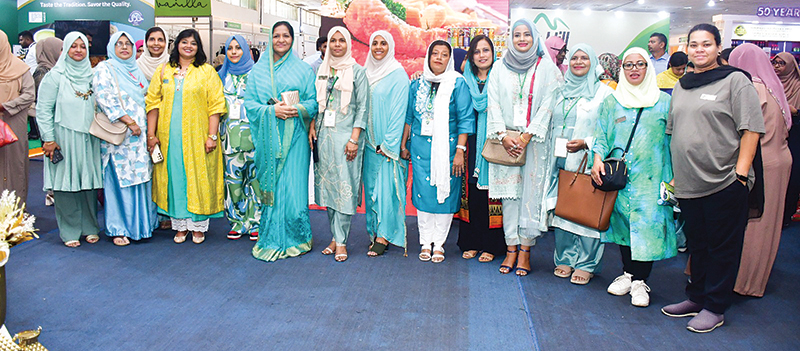
At Muslim Ladies College
The spirit of Ramadan came alive at the Muslim Ladies as the much-awaited pre-Ramadan sale “Marabha” organised by MLC PPA unfolded at SLEC the event drew students, parents and old girls to a colourful celebration filled with the aromas of traditional delicacies and the buzz of excitement from the buzzling stalls
Behind the seamless flow and refined presentation were Feroza Muzzamil and Zamani Nazeem. Whose dedication and eye for detail elevated the entire occasion. Their work reflected not only efficiency but a deep understanding of the institution’s values. It was an event, reflected teamwork, vision and a shared commitment to doing things so beautifully. The shoppers were treated to an exquisite selection of Abayas, hijabs and modern fashion essentials, carefully curated to blend contemporary trends with classic elegance. Each stall offered unique piece from intricately embroidered dresses to chic modern designs. The event also highlighted local entrepreneurs a chance to support homegrown talent. Traditional Ramazan goods and refreshment added a delighted touch, making it as much a cultural celebration as a shopping experience.
- Endless deals,endless possibilities
- Goods at reasonable prices
- Zamani and Feroza setting the bar high
-

 Features5 days ago
Features5 days agoMy experience in turning around the Merchant Bank of Sri Lanka (MBSL) – Episode 3
-

 Business6 days ago
Business6 days agoZone24x7 enters 2026 with strong momentum, reinforcing its role as an enterprise AI and automation partner
-

 Business5 days ago
Business5 days agoRemotely conducted Business Forum in Paris attracts reputed French companies
-

 Business5 days ago
Business5 days agoFour runs, a thousand dreams: How a small-town school bowled its way into the record books
-

 Business5 days ago
Business5 days agoComBank and Hayleys Mobility redefine sustainable mobility with flexible leasing solutions
-

 Business2 days ago
Business2 days agoAutodoc 360 relocates to reinforce commitment to premium auto care
-

 Business6 days ago
Business6 days agoHNB recognized among Top 10 Best Employers of 2025 at the EFC National Best Employer Awards
-

 Midweek Review2 days ago
Midweek Review2 days agoA question of national pride


